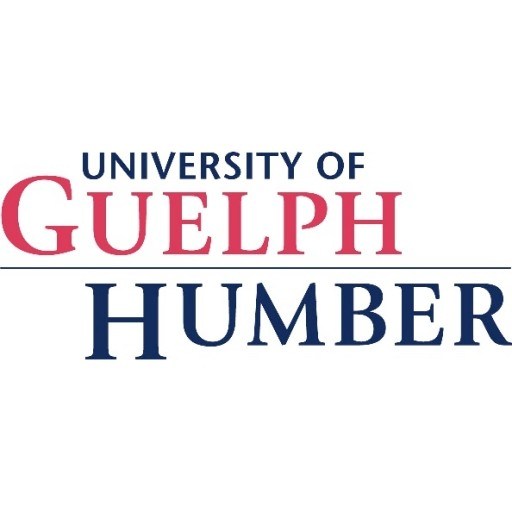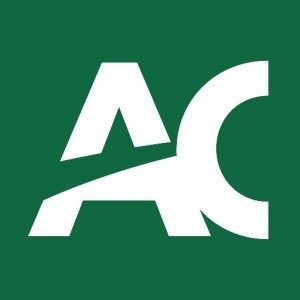Photos of university / #uofreginaofficial
The Pre-Nutrition program at the University of Regina is designed to prepare students for advanced studies in nutrition, dietetics, and related health sciences. This foundational curriculum provides essential coursework in biological sciences, chemistry, human physiology, and social sciences to equip students with a comprehensive understanding of the scientific principles that underpin nutritional health. Throughout the program, students gain critical knowledge in areas such as biochemistry, anatomy, physiology, and microbiology, which are vital for understanding how food impacts the human body and overall health.
The Pre-Nutrition program emphasizes developing practical skills in nutrition assessment, dietary planning, and health promotion. Students are encouraged to explore various aspects of nutrition science, including community nutrition, public health issues, and the role of diet in preventing chronic diseases. The curriculum often includes hands-on opportunities, such as laboratory work and community projects, to enhance real-world application of learned concepts.
This program also emphasizes the importance of ethical considerations, cultural diversity, and sustainability in nutrition practice. Students gain exposure to contemporary issues such as food security, global health challenges, and policy development affecting nutritional health. The Pre-Nutrition pathway is an ideal starting point for students interested in pursuing a Bachelor of Science in Nutrition, Dietetics, or related fields at the University of Regina or other institutions.
Graduates of the Pre-Nutrition program are well-prepared to undertake further specialized education and training necessary for becoming registered dietitians or nutritionists. The program provides a strong academic foundation, critical thinking skills, and a broad understanding of the science behind nutrition, ensuring students are well-equipped to contribute to improving individual and community health outcomes. With experienced faculty, a supportive learning environment, and access to valuable resources and research opportunities, students can confidently pursue their academic and career goals in the dynamic field of nutrition and health sciences.
The Pre-Nutrition program at the University of Regina is designed to provide students with the foundational knowledge and skills necessary to pursue a Bachelor's degree in Nutrition or other health-related fields. This program emphasizes the core sciences, including biology, chemistry, and human physiology, to prepare students for advanced studies in nutrition, dietetics, and public health. Throughout the course of the program, students will explore the fundamentals of human nutrition, understanding how nutrients impact overall health, growth, and development. Coursework includes topics such as food science, microbiology, biochemistry, and anatomy, which collectively lay the groundwork for more specialized study in nutrition-focused programs.
The Pre-Nutrition program aims to cultivate critical thinking, analytical skills, and a solid understanding of scientific principles relevant to health and diet. Students will also develop strong communication abilities, essential for conveying complex nutritional information to diverse audiences. In addition to classroom learning, the program offers opportunities for laboratory work, research projects, and practical experiences, ensuring students are well-prepared for both academic progression and real-world applications. The curriculum is designed to meet university admission requirements for the Bachelor of Science in Nutrition or related programs, enabling students to smoothly transition into their undergraduate studies.
Furthermore, the program encourages students to explore interdisciplinary approaches, understanding the social, economic, and cultural factors that influence dietary habits and nutritional health. Faculty members are dedicated to providing personalized academic advising and mentorship to assist students in achieving their educational and career goals. Upon completing the Pre-Nutrition program, students will have a comprehensive understanding of the basic sciences underpinning nutrition science, and they will be equipped to succeed in advanced degrees or entry into health professions. Overall, the program offers a rigorous, supportive, and engaging learning environment that prepares students for a variety of careers in health, wellness, research, and community service.
Program requirements for the Pre-Nutrition pathway at the University of Regina typically include completing a series of foundational coursework designed to prepare students for admission into the Bachelor of Science in Nutrition and Food Science or related programs. Students must successfully complete a minimum of 30 credit hours of coursework, including key courses such as Introduction to Psychology, General Chemistry, Organic Chemistry, Biology, and Mathematics. These courses aim to provide students with the essential knowledge in sciences and social sciences necessary for advanced study in nutrition. Additionally, students are encouraged to engage in related extracurricular activities, such as volunteering or internships in health-related fields, to strengthen their application for future program admission. It is important that students maintain a competitive GPA, generally at least a 65% or higher, to meet admission thresholds. No formalized GPA cutoff is officially specified, but competitive grades are recommended. Students should also consult the specific admission requirements of the Bachelor of Science in Nutrition and Food Science or equivalent programs to ensure all prerequisites are fulfilled. The Pre-Nutrition program does not culminate in a degree but serves as a preparatory pathway, emphasizing academic success and relevant experience. Advisors are available to assist students in selecting appropriate courses aligned with their academic goals and ensuring they meet all prerequisites for program transfer. International students must also demonstrate English language proficiency through tests such as IELTS or TOEFL, meeting the minimum score requirements specified by the university. Overall, the program emphasizes academic excellence, relevant coursework, and extracurricular engagement to prepare students for successful entry into professional nutrition studies at the undergraduate level or related health sciences programs.
Want to improve your English level for admission?
Prepare for the program requirements with English Online by the British Council.
- ✔️ Flexible study schedule
- ✔️ Experienced teachers
- ✔️ Certificate upon completion
📘 Recommended for students with an IELTS level of 6.0 or below.
The University of Regina offers various financing options for students enrolled in the Pre-Nutrition program, designed to help reduce financial barriers and support students in achieving their academic goals. Tuition fees are established annually and vary depending on whether students are domestic or international. Domestic students can typically access regular government funding, including provincial student assistance programs such as Saskatchewan Student Loans and Saskatchewan Grant, which provide financial aid based on demonstrated financial need. International students are generally responsible for paying full tuition fees, which are higher than those for domestic students, and may consider alternative funding sources such as private scholarships, external bursaries, or sponsorships.
The university also provides a range of scholarships and bursaries specifically for students in health-related programs, including those pursuing studies related to nutrition and wellness. These awards are often merit-based or need-based and can significantly offset the cost of tuition. Additionally, students may explore work-study programs available on campus or part-time employment opportunities within the university or the surrounding community to supplement their income during their studies.
Financial planning resources, including counseling services and workshops on budgeting and financial management, are available to students to assist in effective money management throughout their academic journey. Some students may also qualify for federal and provincial grants or subsidies geared towards students enrolled in health sciences or related fields. It is recommended that prospective students consult the university’s admissions and financial aid offices for the most current details on tuition fees, available funding opportunities, application procedures, and deadlines. The university is committed to supporting student success through a comprehensive approach that combines financial aid with academic and personal support services.
The Pre-Nutrition program at the University of Regina is designed to prepare students for entry into the university's Bachelor of Science in Nutrition and Food program or other professional health programs related to nutrition and dietetics. This program provides foundational knowledge in sciences such as biology, chemistry, and human anatomy, along with introductory courses in nutrition principles. Students gain a solid understanding of the basic sciences necessary for advanced study in nutrition, including coursework in chemistry, biology, and psychology, alongside health sciences. The curriculum emphasizes developing critical thinking and analytical skills that are essential for understanding complex nutritional concepts and their impact on human health.
Throughout the program, students also learn about human development, diet planning, food safety, and the role of nutrition in disease prevention and management. The program often includes laboratory components to give students practical experience in food analysis and research methods. Additionally, students are encouraged to engage in community-based projects or internships to apply their knowledge in real-world settings, gaining valuable experience working with diverse populations.
The Pre-Nutrition program serves as a stepping stone for students aiming to pursue a Bachelor of Science in Nutrition and Food or to meet prerequisites for health professional programs such as medicine, pharmacy, or dietetics at the University of Regina or other institutions. The program typically spans two years, with students required to maintain a certain academic standing to progress into upper-level coursework or transfer into the degree program.
Students benefit from the university's modern facilities, dedicated faculty members with expertise in nutrition and health sciences, and a supportive academic environment. The program also offers opportunities for research assistantships, student organizations related to health and nutrition, and access to university resources such as libraries, laboratories, and career services. Graduates of the Pre-Nutrition program are well-positioned to continue their education in nutrition or health sciences, or to enter employment in community health, food services, or related fields. Overall, it provides the essential academic preparation and practical experience necessary for students committed to advancing their careers in nutrition and health.



